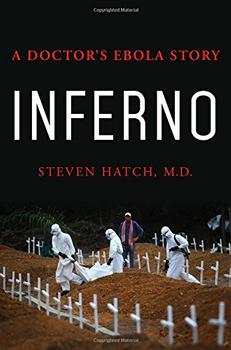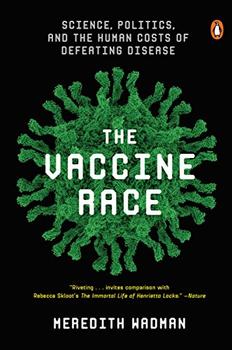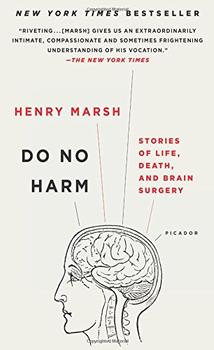Summary | Excerpt | Reviews | Beyond the book | Read-Alikes | Genres & Themes | Author Bio

A Doctor's Ebola Story
by Steven HatchA physician's memoir about the ravages of a terrible disease and the small hospital that fought to contain it, Inferno is also an explanation of the science and biology of Ebola: how it is transmitted and spreads with such ferocity.
Inferno is a glimpse into the white-hot center of a crisis that will come again.
Dr. Steven Hatch first came to Liberia in November 2013, to work at a hospital in Monrovia. Six months later, several of the physicians Dr. Hatch had mentored and served with were dead or barely clinging to life, and Ebola had become a world health emergency. Hundreds of victims perished each week; whole families were destroyed in a matter of days; so many died so quickly that the culturally taboo practice of cremation had to be instituted to dispose of the bodies. With little help from the international community and a population ravaged by disease and fear, the war-torn African nation was simply unprepared to deal with the catastrophe.
As Dr. Hatch notes, while Ebola is temporarily under control, it will inevitably re-emerge - as will other plagues, notably the Zika virus, which the World Health Organization has declared a public health emergency.
At the height of the epidemic, infectious disease specialist Steven Hatch volunteered, along with other medical personnel, to staff a Liberian Ebola Treatment Unit (ETU) for four weeks; in Inferno he relates his experiences during this crisis. One needn't be an aficionado of medicine-themed books to enjoy Inferno, which should have wide appeal well beyond the typical non-fiction memoir...continued
Full Review
 (993 words)
(993 words)
(Reviewed by Kim Kovacs).
Ebola, the viral disease at the core of Steven Hatch's medical memoir, Inferno, is among the most deadly diseases in the world. It is not alone, however, in its lethality; other viruses are at least as likely to be fatal.
There's some debate as to the "most fatal" virus in the world since it depends on what criteria you use (e.g., percentage of those infected who die, total number of people who succumb, etc.), but some of the better known ones are listed below.
 The Marburg virus
with a mortality rate approaching 90% tops many agencies' lists. It's closely related to Ebola and its symptoms are indistinguishable from it; it requires a blood test to tell them apart. Like Ebola, the Marburg virus causes "wet symptoms" such as ...
The Marburg virus
with a mortality rate approaching 90% tops many agencies' lists. It's closely related to Ebola and its symptoms are indistinguishable from it; it requires a blood test to tell them apart. Like Ebola, the Marburg virus causes "wet symptoms" such as ...

If you liked Inferno, try these:

by Meredith Wadman
Published 2018
The epic and controversial story of a major breakthrough in cell biology that led to the conquest of rubella and other devastating diseases.

by Henry Marsh
Published 2016
An unforgettable insight into the countless human dramas that take place in a busy modern hospital, and a lesson in the need for hope when faced with life's most difficult decisions.